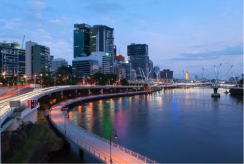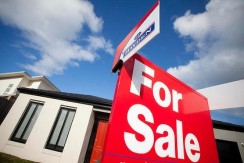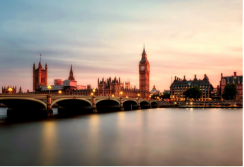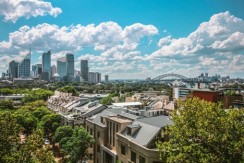Foreign investment is flooding into Australia's hotel sector, just as the country attempts to crack down overseas buyers.
More than $2 billion was spent in hotel transactions during the 2014 financial year, according to Dransfield Hotels and Resort Group's 2015 report, while annual returns climbed as high as 12.9 per cent in Q3 2014, according to the IPD Index.
This year, the trend has continued, with Sydney emerging as a hotel hotspot for the Asia Pacific region. The central business district has been a main focus for investors, with AUD 1.9 billion of sales taking place in the past 22 months.
Major recent transactions include, in 2013, the 531-room Four Seasons Sydney (sold to Korea's Mirae for $340 million), the 436-room Sofitel Sydney Wentworth (sold to Singapore's Frasers Centrepoint for just over $200 million), and, in 2014, the 557-room Sheraton on the Park (sold to China's Sunshine Insurance Group for $463 million). This year, the 579-room Hilton Sydney was sold to a group associated with Singapore's Bright Ruby for $442 million.
Limited supply has led to "exceptional" trading fundamentals, says JLL.
"Over many weeks of the year it is often difficult to book a five-star hotel room in Sydney between Monday and Thursday. There are no rooms available and the ripple effect this is having across three and four star assets is significant, said Craig Collins, Chief Executive Officer for Australasia at JLL.
"Sydney is having a golden run and I can't see this slowing down anytime soon."
The boom in the hotel sector follows an overall surge in foreign interest in Australia real estate.
The latest figures from the Foreign Investment Review Board show that in the financial year of 2013-14, a total of $167.4 billion of overseas investments were approved.
Residential and commercial real estate investment totalled $74.6 billion, up 44 per cent annually. China is now the biggest foreign spender, investing $12.4 billion on real estate, up from $5.9 billion in the previous year and more than double the amount invested by America.
Not everyone has welcomed investment from abroad, though: the country's property market has seen values rocket in Sydney and Melbourne, a rise that has been attributed, in part, to foreign investors snapping up supply and causing domestic buyers to be priced out.
Australia already has restrictions in place to combat this, with all investments subject to approval by the FIRB, while non-resident buyers are only permitted to buy new build properties. (Temporary residents can buy existing homes, but can only own them while they reside in the country.)
Nonetheless, foreign spending on existing homes has risen to $7.17 billion, which has fuelled concern that overseas buyers are investing in property illegally.
In response, the government has now announced new measures to crack down on illegal investment, particularly in residential real estate: foreign buyers who purchase property against the regulations will face a fine of $127,500, as well as up to three years in jail. Agents or developers who knowingly facilitate these purchases will also be subject to penalties.
"If all foreigners are doing is adding to the housing stock, that tends to reduce prices but once foreigners come into existing housing stock, that tends to increase prices," commented Prime Minister Tony Abbott.
Applications to invest will also be subject to a $5,000 fee for homes worth up to $1 million.
Photo: The view from the Four Seasons hotel, Sydney (Sarah Ackerman)
Are you looking to buy property in Australia ? Melbourne , Perth , Reedy Creek , Western Australia , Wynnum West
Are you looking to rent property in Australia ? Surfers Paradise , Byron Bay , Margaret River , Cowes , Dunsborough








Author
Nick Marr
I am an internet entrepreneur with a passion for driving big audiences and a love for real estate. I have had plenty of ups and downs which has given me the experience to help others launch their own businesses. I enjoy projects that save consumers time and money, challenge convention and add real value to peoples lives.